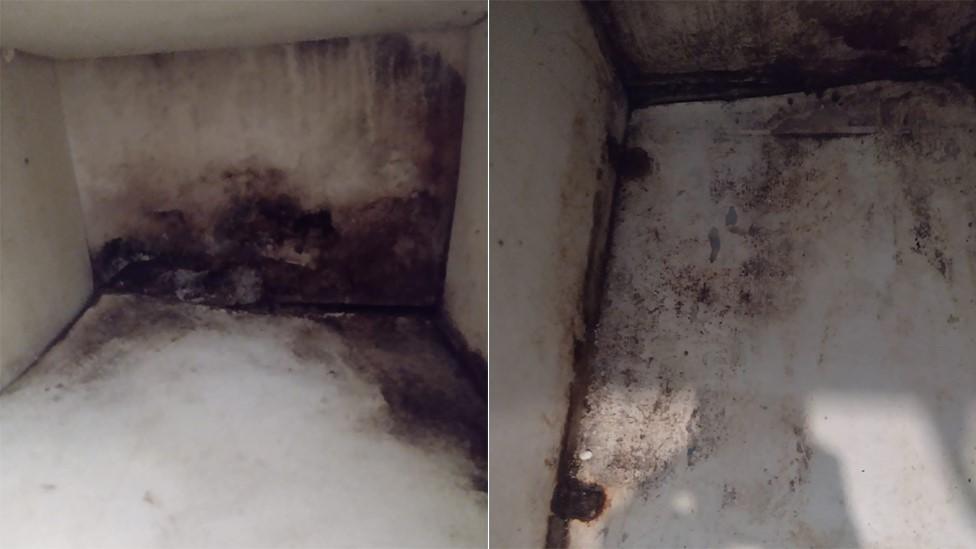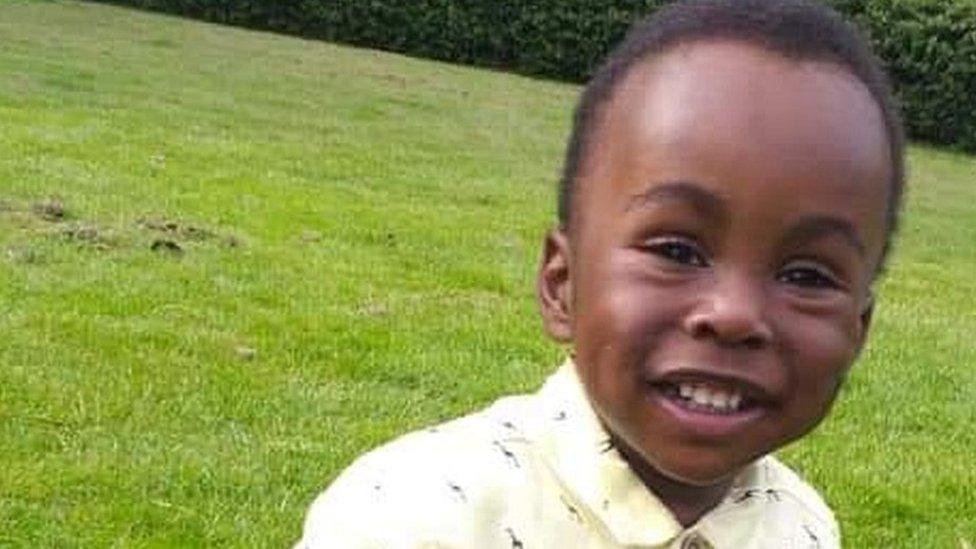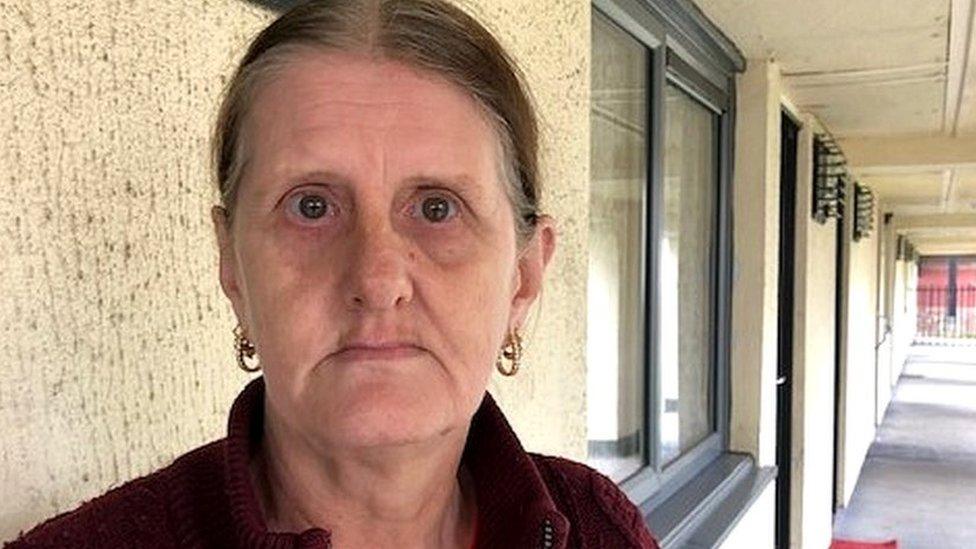Awaab Ishak: 'I fear for my children after death from mould exposure'
- Published

The woman, who asked not to be named, said mould was "everywhere" in her home
Living in mould-ridden housing supplied by the firm which provided a flat where a boy died from exposure to spores has left a mum fearing for her children.
A coroner concluded Awaab Ishak died from a respiratory condition caused by mould and Rochdale Boroughwide Housing (RBH) did nothing to solve the issue.
The mother, who asked not to be named, said she complained to RBH for three years, but it had not fixed the issue.
Her comments came as RBH announced it would spend £1.2m on the estate.
After the coroner concluded mould was the direct cause of Awaab's death at his inquest on Tuesday, RBH's chief executive was called to meet Housing Secretary Michael Gove to explain why no action was taken to fix the issue, despite the two-year-old's father having complained about it for years.
'Scrub and paint'
Other people living near Awaab's family's home on the Freehold estate told the BBC that the issue with mould was one that many residents faced.
The mother, who lives in a two-bedroom flat with her husband and two children, said her family had "ended up using inhalers" as the mould was "everywhere".
She said she feared for her children and was "really worried about it".
"I don't want that to happen again to anyone again," she said.

Two-year-old Awaab Ishak died in December 2020 after being exposed to mould in his home for his whole life
She said the problem was particularly bad in her kitchen, where it was in her oven, fridge, washing machine and cupboards, and in the bedrooms, where her children's bedding was covered in spores.
She said that like Awaab's father, she had repeatedly raised the issue with RBH, but it had failed to provide a permanent remedy.
"From time to time, they come and they scrub and paint [it] but that doesn't treat it at all," she said, adding that the mould would return within weeks.
She said it had left her desperate to move.
"I don't like to live here at all," she said.
"It isn't like a home. You can smell the mould [and damp] when you enter the house.
"I feel much better when I go outside."
'Not surprising'
Raja Miah, who lives on a neighbouring estate, said his home was covered with mould, which was worst in the bedrooms, where it was on the walls and around the windows.
"People have been out, but it comes back," he said.
He said he was so concerned about his children's health, he and his wife were considering having the whole family sleep together in the living room.

Susan Hurn said a neighbour had to throw out her son's bedding as it was mouldy
Susan Hurn, who has lived on the estate for almost 30 years, said the problem was "not surprising".
She said her neighbour had to throw away her son's bedding because it was mouldy and all the flats had an issue with ventilation in the bathroom.
"There is a fan, but it doesn't work properly and there is no window," she said.
Mark Slater, from the Greater Manchester Tenants Union, said many other properties on the estate had "similar issues" and that there were people with ongoing health problems having to live with mould every day.
He said it was "quite reassuring" that Mr Gove had "stepped in and wants an explanation as to why this little boy died".
'Improve air quality'
Greater Manchester Mayor Andy Burnham said Awaab's death "must become a powerful catalyst for change in housing standards in all sectors".
He said the boy's parents must see "full accountability for the failings, missed opportunities and lack of compassion shown in this case on the part of those responsible".
The housing secretary said earlier that he had summoned RBH chief executive Gareth Swarbrick to his department to explain what had happened in Awaab's case and added that the government was bringing forward legislation to ensure housing associations responsible for providing social housing were "held to account".
An RBH representative said that meeting had now taken place, but the firm could not comment on what was discussed.
However, they said they had now "visited every home in Freehold to carry out a survey of each flat to check for damp or mould issues".
"As a result of these surveys, we are spending over £1.2m installing positive input ventilation units in each flat... to improve air quality, circulation and to reduce the possibility of condensation and mould," they said.
"These works will also involve installing new extractor fans in the kitchen and bathroom.
"This contract is in place now and the programme of work starts on 5 December 2022."

Why not follow BBC North West on Facebook, external, Twitter, external and Instagram, external? You can also send story ideas to northwest.newsonline@bbc.co.uk
Related topics
- Published16 November 2022

- Published15 November 2022

- Published15 November 2022

- Published7 November 2022

- Published4 November 2022
